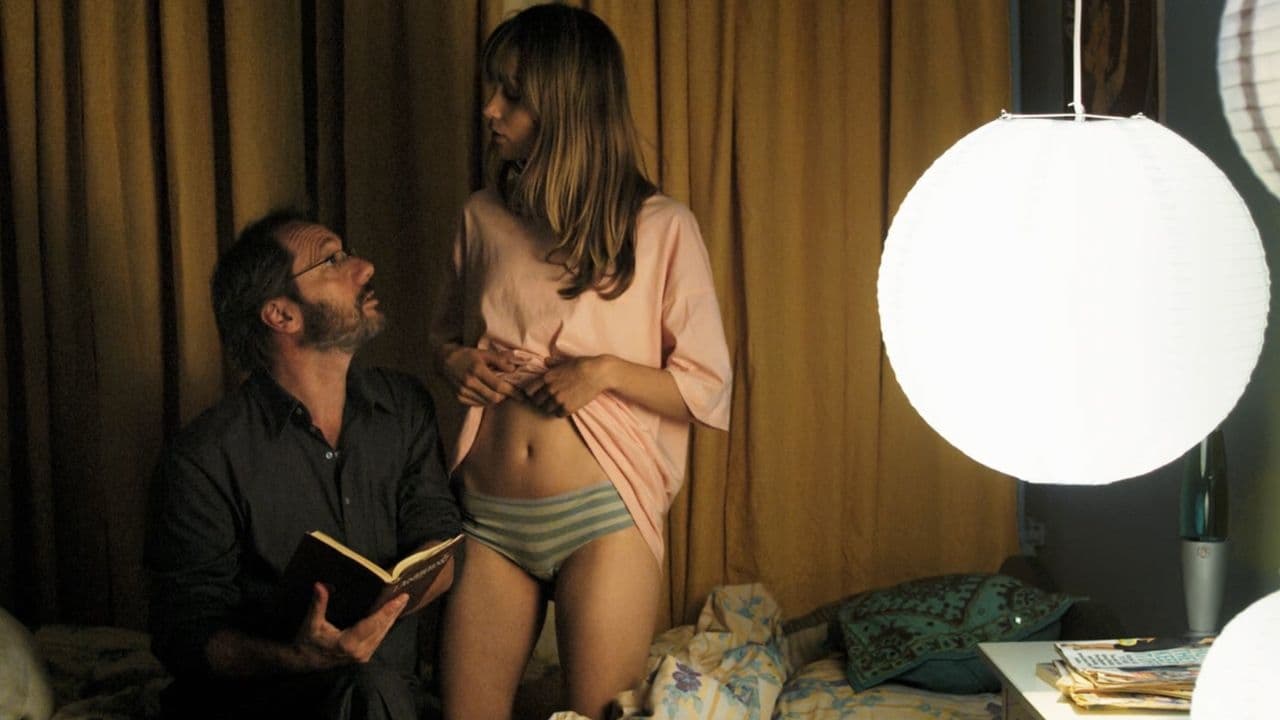

This review was started at Cambridge Film Festival (UK) – 15 to 25 September 2011 – after seeing two screenings there* Contains spoilers *Since I saw Tirza (my second viewing being on 21 September), I have thought about it on many days – unlike some, I would not choose to describe it as having haunted me, even though the visitations would be benign ones, but say that I have pictured scenes in it and their emotional force, or the latter through the former.On a first viewing, I was less sure, because I am interested in the depiction of issues relating to mental health, and I wanted to be sure that I was still persuaded, despite knowing the end from the beginning: I am now convinced that I should read the novel, to see which is the more powerful work. In the meantime – in the face of a list of reading priorities - the essential triangle of Jörgen, looking for Tirza with Kaisa, remains highly evocative.The pressures that have been on Jörgen become clear early on: staged redundancy, domestic abuse verging on a humiliating kind of violence, unforeseen loss of financial stability, and, amidst it all, overcompensating by trying too hard to be a good father. The list is not meant to be reductionist or exhaustive, and it is not one whose force Jörgen recognizes or understands (in its totality), but they are facts - and all of us would react differently to them.If I had to say what the film is, I would end up with a phrase such as 'meditative tragedy'. However, that term in no way gives expression to the ambivalent relationship between Jörgen and Tirza, his daughter; which, itself, is one that Kaisa, in another country (although she should be able to follow Jörgen, whether he speaks in Dutch or English), only knows about directly through him (and, probably also, because of what he does not say).Tirza, although the film as named after her, is the absence at the heart of the film to - and through - which Kaisa and Jörgen relate, and around whom they navigate Namibia (whose scenery is beautifully portrayed, when we leave the confined atmosphere of Windhoek, and the area where Kaisa lives). This is all very sensitively and thoughtfully done, with tremendous, and very inner, performances from Keitumetse Matlabo (as Kaisa) and Gijs Scholten van Aschat (Jörgen).Early on, Jörgen says that he likes Kaisa, because he can talk to her – we may (as I did) not be sure how much she understands, but the scene in Big Mama shows perfectly that she has followed what has gone on, with, if it does not sound patronizing, wisdom and depth beyond her years. (It does not matter that she does not have much to say, because she does far more than speak lines.)For she is no mere excuse for us to hear what is on Jörgen's heart, hear his confession, as she would be in a lesser work that failed to think out the dynamics. Kaisa is the catalyst for much, if not all, that happens in this land to which Jörgen is foreign (and where, perhaps aware of the colonial past, feels his awkwardness and embarrassment): she senses his need, his literal need, when she says 'Need company, sir?', and she helps and guides him to find what he has buried in and from himself.We are left thinking about her, left wondering what could have been, left remembering how it all unfolded – when that happens, and when it is still happening weeks later, a real piece of cinema has been made and witnessed. Thank you, Rudolf van den Berg, for bringing this to the big screen.
... View MoreA movie mixed with the past and the present, the regret, the loss, the father and the prodigal daughter, the constant flashbacks and the confusing mix ups. How could it be possible that this father's cell phone could still get connection no matter where he traveled in the remote and deserted wildness of Africa? Give me a break. His intervene of the hyena and the seal on the beach was what? A symbol of his meddling of his daughter's love affair. This guy was a loser, a confusing low moral guy who actually just used the excuse of finding his estranged daughter in order to get over the shames and the losses of his own life, his obsession of his talented daughter, somewhat an overwhelmed incest father-daughter complex. This is a very boring movie that I didn't find any depth in anything.
... View MoreThe protagonist shows how seemingly normal people can drift away from themselves and all morals even without going through massive trauma or fighting for their lives. Jurgen is an average guy who's love for life took a dive somewhere and he feels he lost his masculinity in a household dominated by his perpetually disappointed wife and his teenage early matured daughters. Since then his wife left him but takes every opportunity to humiliate him. Although trying very hard he seems to fail in understanding his two daughters. When his youngest daughter Tirza disappears in Africa he goes on a mission to find her. His deteriorating sanity, excessive drinking and the heat suck him further into a whirlpool of disaster in an aimless search for his daughter. The only person sticking with him is a child prostitute who has nothing to lose since all she has is a dying mother in the slums. At first it seems his intentions are to save her but in the end it's him who needs it the most and as the story slowly unfolds itself it becomes clear what really brought him to Africa. Van Aschat as Jurgen couldn't have done this any better.
... View MoreThe thematics of "Tirza" revolve around the principle of the 'dead white man'. The typical man who seems denied to the elite of living men: this is Jörgen Hofmeester. He is an insignificant, almost banal man whose world further collapses when his favorite daughter, Tirza, graduates and leaves with her Morrocan boyfriend for Namibia. Upon not hearing a word from her after the goodbye, he decides to travel after her to Windhoek.What follows is an enormous quest for significance, for his daughter and for a center for misguided human beings like himself, on which he encounters only more disappointment, insignificance and errancy. Based on a novel by Anton Grunberg, this movie is highly literary and philosophical in non-aesthetic and non-sentimental ways. From the bitterness of a 9-year-old child prostitute to the coherence of his lives in both the Netherlands and Namibia; everything is masterfully dissected and analyzed from an absolutely merciless point of view.No heroes here, no villains, because the only villain, as we know, is the human psyche. Grunberg, as well as screenwriter/director Van den Berg, clearly knows how to make surrealism realistic and symbolism natural. This is a completely disoriented movie and after seeing it, it will be difficult to know where the toilets of the cinema are.As for the cinematography: it is splendid. Cold colors make even the sunlit Namibia look sinister and the quite contrasted colors give the film an extra dimension: not only its visuals are contrasted, but so are its characters. Subtle references to The Shining, Paris;Texas and many other films must be noted.The performances are engaging and often quite funny: Sylvia Hoeks playing a girl 9 years her minor is the light-bulb in all this and you can sympathize with this sympathetic yet unsure girl. She may be the only thing which is significant in this story. It's understandable that Jörgens feelings for her surpass fatherhood.
... View More